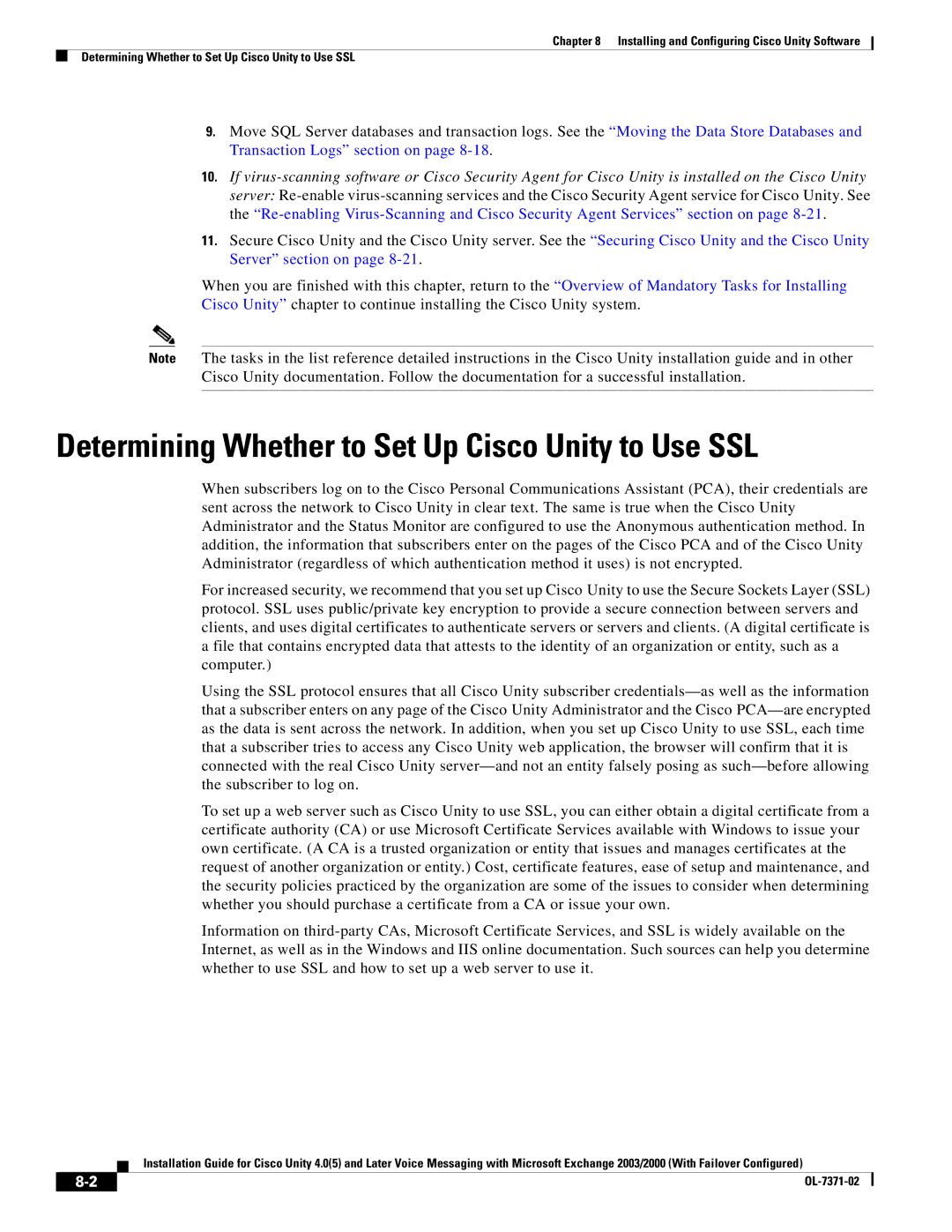
Chapter 8 Installing and Configuring Cisco Unity Software
Determining Whether to Set Up Cisco Unity to Use SSL
9.Move SQL Server databases and transaction logs. See the “Moving the Data Store Databases and Transaction Logs” section on page
10.If
11.Secure Cisco Unity and the Cisco Unity server. See the “Securing Cisco Unity and the Cisco Unity Server” section on page
When you are finished with this chapter, return to the “Overview of Mandatory Tasks for Installing Cisco Unity” chapter to continue installing the Cisco Unity system.
Note The tasks in the list reference detailed instructions in the Cisco Unity installation guide and in other Cisco Unity documentation. Follow the documentation for a successful installation.
Determining Whether to Set Up Cisco Unity to Use SSL
When subscribers log on to the Cisco Personal Communications Assistant (PCA), their credentials are sent across the network to Cisco Unity in clear text. The same is true when the Cisco Unity Administrator and the Status Monitor are configured to use the Anonymous authentication method. In addition, the information that subscribers enter on the pages of the Cisco PCA and of the Cisco Unity Administrator (regardless of which authentication method it uses) is not encrypted.
For increased security, we recommend that you set up Cisco Unity to use the Secure Sockets Layer (SSL) protocol. SSL uses public/private key encryption to provide a secure connection between servers and clients, and uses digital certificates to authenticate servers or servers and clients. (A digital certificate is a file that contains encrypted data that attests to the identity of an organization or entity, such as a computer.)
Using the SSL protocol ensures that all Cisco Unity subscriber
To set up a web server such as Cisco Unity to use SSL, you can either obtain a digital certificate from a certificate authority (CA) or use Microsoft Certificate Services available with Windows to issue your own certificate. (A CA is a trusted organization or entity that issues and manages certificates at the request of another organization or entity.) Cost, certificate features, ease of setup and maintenance, and the security policies practiced by the organization are some of the issues to consider when determining whether you should purchase a certificate from a CA or issue your own.
Information on
Installation Guide for Cisco Unity 4.0(5) and Later Voice Messaging with Microsoft Exchange 2003/2000 (With Failover Configured)
| ||
|
